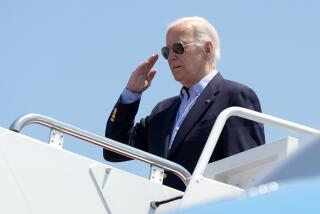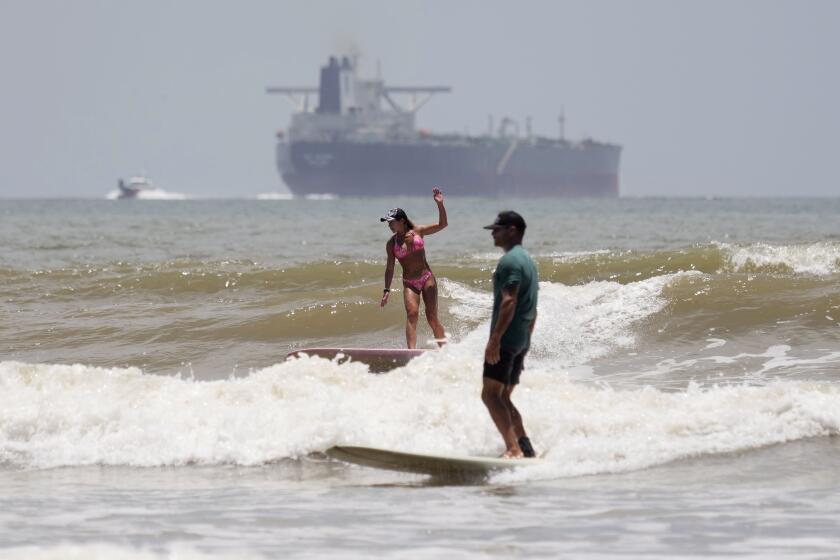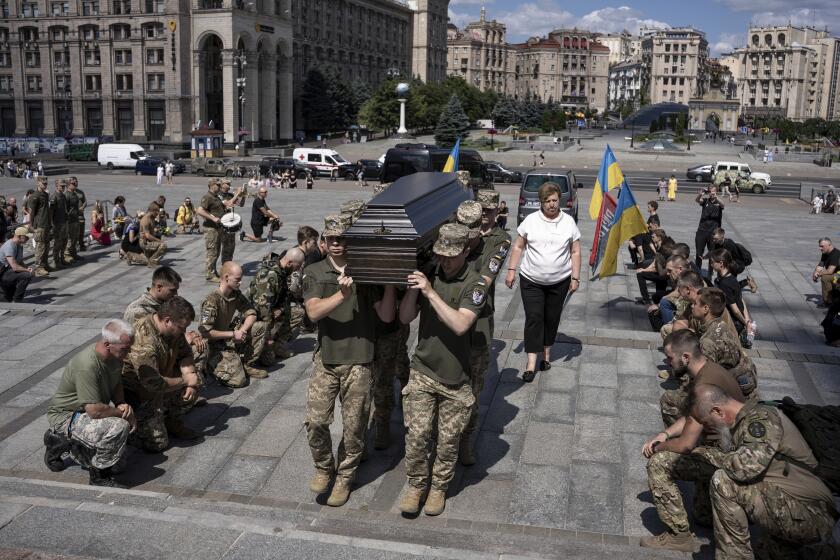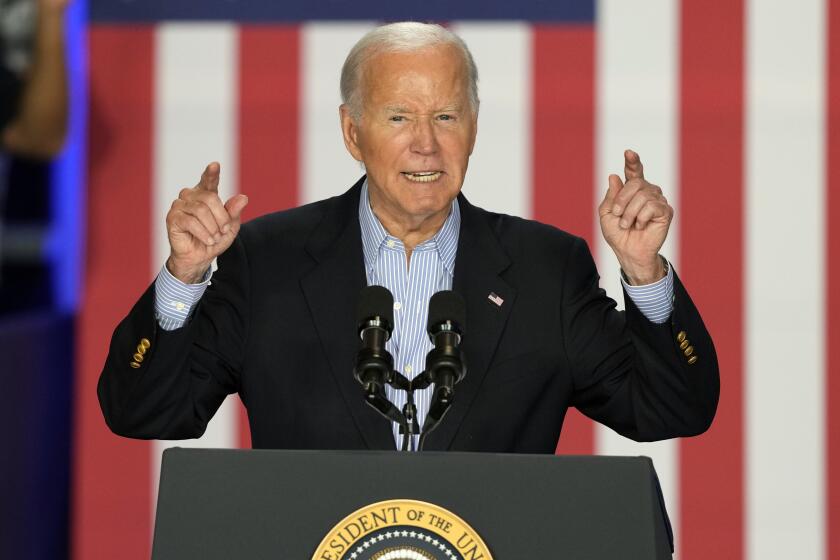Astronaut Killed in Air Crash May Have Broken NASA Rule
Astronaut S. David Griggs, killed in a weekend plane crash, was violating informal NASA rules that forbid off-duty aerobatic flying by crew members assigned to upcoming shuttle flights, officials said Sunday.
Griggs, a popular shuttle veteran and an accomplished pilot who had logged more than 9,500 hours in a variety of aircraft, had been in training to serve as co-pilot of the shuttle Discovery for a classified military mission scheduled to be launched Nov. 19.
He was killed Saturday when the T-6 World War II training plane he was piloting crashed near a private air strip south of Earle, Ark., a small community about 20 miles west of West Memphis, Ark.
Jeff Carr, speaking for the National Aeronautics and Space Administration at the Johnson Space Center in Houston, said that Griggs, 49, apparently was performing aerobatics at the time of the accident.
Although many astronauts are private pilots or active military aviators, the astronaut office at the space center forbids space crew members in training for missions to engage in recreational flying. The rule is enforced, Carr said Sunday, via the “honor system.”
“There’s a general understanding that when you’re named to a prime crew, certain activities with heightened risks are off limits,” Carr said. “My understanding is that aerobatic flying would fall in that category.”
Sandra Pearson, supervisor of the Federal Aviation Administration flight service office in Little Rock, said: “There is never any initial indication of what caused a crash. It always takes an investigation to try to reconstruct what happened.”
“It looked like he was clowning around,” said Otis Barker, who was working in his garden about 150 yards from the crash site. “He’d go up, then shut off the motor and fire it up again.”
Another witness, William H. Wooden, was working in his yard near the private air service’s hangars. “He was cutting up, flying upside down and all kinds of ways, every kind of way I’ve ever seen them fly those things,” he said.
Arkansas State Police Cpl. Rick Dickinson said the plane caught fire on impact, but the blaze was quickly extinguished. He said that Griggs died in the crash, not the fire.
In the Mercury, Gemini and Apollo programs, backup crews were named so that an astronaut could be replaced in the event of illness or some other problem that might prevent a prime crew member from making the flight.
NASA discontinued that practice early in the shuttle program. Carr has said it was too early to say whether the Discovery mission planned for November might be delayed because of Griggs’ death.
More to Read
Start your day right
Sign up for Essential California for news, features and recommendations from the L.A. Times and beyond in your inbox six days a week.
You may occasionally receive promotional content from the Los Angeles Times.






